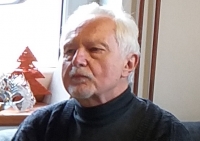That patriotic feeling to be a Czech again

Download image
Jaroslav Šťastný was born on December 20, 1946 in Cheb. His father was the director of the local music school and also taught Jaroslav music. From childhood, he played the violin and after primary school, he entered a music conservatory in Kroměříž and subsequently Janacek Academy of Performance Arts in Brno. In 1970 he emigrated to Germany, settling in Stuttgart, where he began playing in a chamber orchestra. Jaroslav acquired German citizenship and travelled the world. After the Velvet Revolution, he regained his Czechoslovak citizenship and in 2010 he settled in Doubice in the Šluknov foothills.





















